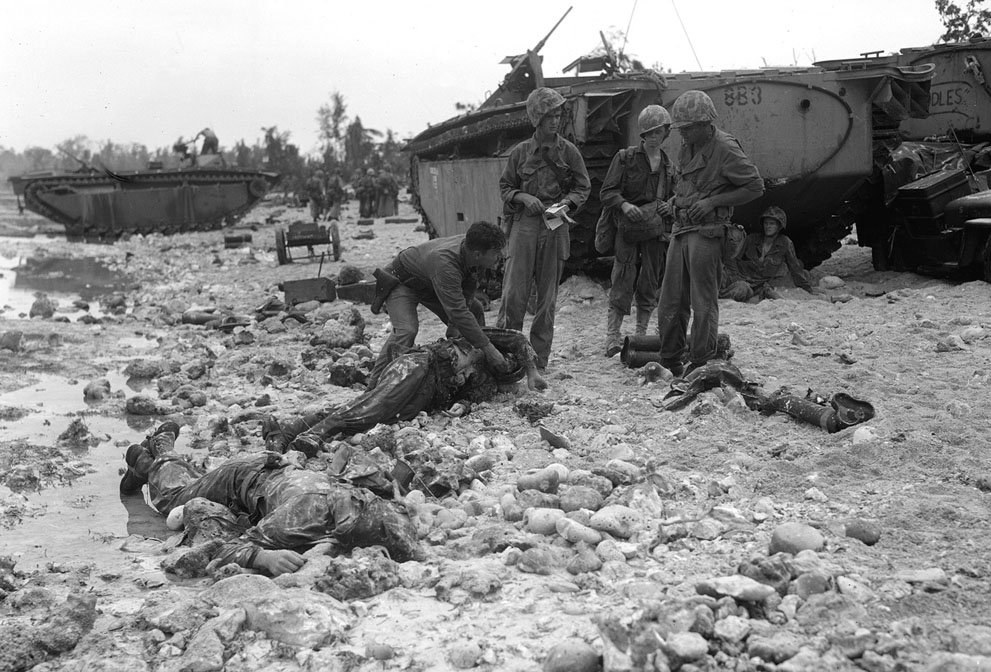The instability in Europe caused by the First World War (1914-1918) eventually turned into another international conflict, the Second World War, which erupted two decades later and became even more destructive.
Adolf Hitler and his National Socialist Party (Nazi Party) came to power in economically and politically unstable Germany.
He reformed the military and signed strategic agreements with Italy and Japan in his quest for world domination. The German invasion of Poland in September 1939 led to the fact that Great Britain and France declared war on Germany, which marked the beginning of the Second World War.
Over the next six years, war will claim more lives and wreak havoc on such a vast territory across the globe like no other war in history.
Among the estimated 45-60 million people killed were 6 million Jews killed by the Nazis in concentration camps as part of Hitler's diabolical policy of "final solution to the Jewish question", also known as.
Towards World War II
The devastation caused by the Great War, as the First World War was called at the time, destabilized Europe.
In many ways, World War II spawned the unresolved issues of the first global conflict.
In particular, the political and economic instability of Germany and long-term resentment against the harsh terms of the Versailles Peace Treaty served as fertile ground for the rise to power of Adolf Hitler and his National Socialist (Nazi) Party.
Back in 1923, in his memoirs and in his propaganda treatise "Mein Kampf" (My Struggle), Adolf Hitler predicted the great European war, which would result in "the extermination of the Jewish race in Germany."
After taking over as Reich Chancellor, Hitler quickly consolidated power, appointing himself Führer (Supreme Commander) in 1934.
Obsessed with the superiority of the "pure" German race, which was called the "Aryan", Hitler believed that war was the only way to get the "Lebensraum" (living space for the settlement of the Germanic race).
In the mid-1930s, he secretly began rearming Germany, bypassing the Versailles Peace Treaty. After signing treaties of alliance with Italy and Japan against the Soviet Union, Hitler sent troops to occupy Austria in 1938 and annex Czechoslovakia the following year.
Hitler's open aggression went unnoticed, as the United States and the Soviet Union were focused on domestic politics, and neither France nor Britain (the two countries with the greatest destruction in the First World War) were eager to enter into confrontation.
The beginning of the second world war 1939
On August 23, 1939, Hitler and the leader of the Soviet state, Joseph Stalin, signed a non-aggression pact called the Molotov-Ribbentrop Pact, which sparked violent unrest in London and Paris.
Hitler had long-term plans to invade Poland, a state that Britain and France guaranteed military support in the event of a German attack. The pact meant that Hitler would not have to fight on two fronts after the invasion of Poland. Moreover, Germany received assistance in conquering Poland and dividing its population.
On September 1, 1939, Hitler attacked Poland from the west. Two days later, France and Great Britain declared war on Germany and World War II began.

On September 17, Soviet troops invaded Poland in the east. Poland quickly surrendered to attacks from two fronts, and by 1940 Germany and the Soviet Union had shared control of the country, under a secret clause in a non-aggression pact.
Then Soviet troops occupied the Baltic states (Estonia, Latvia, Lithuania) and suppressed the Finnish resistance in the Russian-Finnish war. For the next six months after the capture of Poland, neither Germany nor the Allies took active action on the western front and the media began to call the war "background".
At sea, however, the British and German navies clashed in a fierce battle. Deadly German submarines attacked British trade routes, sinking more than 100 ships in the first four months of World War II.
World War II on the Western Front 1940-1941
On April 9, 1940, Germany simultaneously invaded Norway and occupied Denmark, and the war broke out with renewed vigor.
On May 10, German forces swept through Belgium and the Netherlands in a plan later called "blitzkrieg" or lightning war. Three days later, Hitler's forces crossed the Meuse River and attacked French forces at Sedan, located on the northern border of the Maginot Line.
The system was considered an insurmountable protective barrier, but in fact the German troops broke through bypassing, making it completely useless. The British Expeditionary Force was evacuated by sea from Dunkirk at the end of May, while French forces in the south tried to offer any resistance. By early summer, France was on the verge of defeat.
